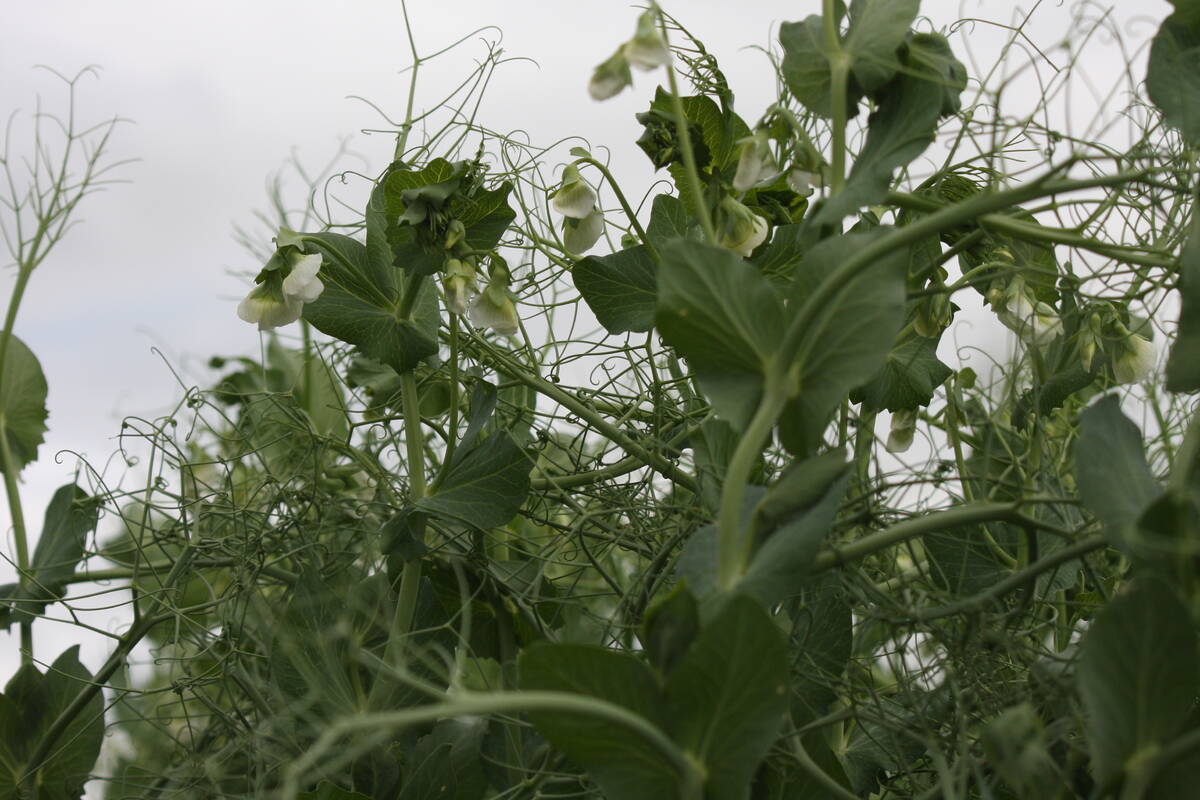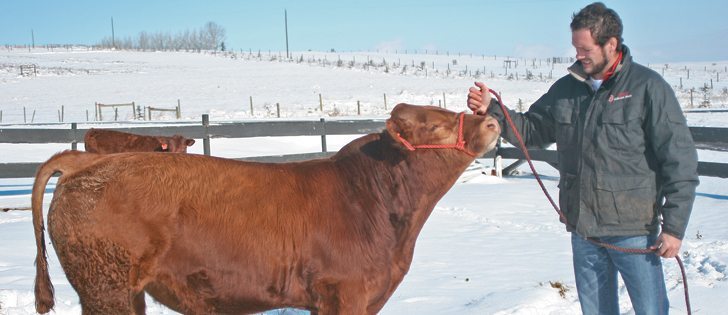Wrestling coach | Jeremiah Barnert sees similarities in his two careers
OKOTOKS, Alta. — As an athlete, Jeremiah Barnert seeks constant improvement in strength and skill.
As a beef producer, he expects improved performance year by year from his Gelbvieh cattle.
The former wrestler works as a strength and conditioning coach for 120 varsity and national athletes at the University of Calgary. Within that group are Olympic class athletes who train hard for years to hone their skills and build strength. They are also taught about nutrition.
“The biggest thing is, you have to figure out how each individual athlete works, and for me, that might be adapting and changing their diet based on that,” he said.
Read Also

High pea yields shock farmers
There is going to be a massive pea carryout at the end of this crop year.
“We do a lot of tests that allow us to figure out what athletes might need on certain days.”
Athletes can consume 5,000 to 7,000 calories per day, which includes a good source of protein and fats.
“They do not typically chase food fads because they have enough support staff to guide them in the right direction,” he said.
“I’ve had a few vegetarian athletes throughout my career as a strength and condition coach, but for the entire national luge team they are all definitely meat eaters.”
Earlier this year, the Barnert family donated 600 pounds of beef to the Canadian luge team in its quest for Olympic gold at the winter games in Sochi, Russia, in February.
The team placed in the top 10 at the 2012 world luge championships.
“We could have donated $5,000 to the national luge team, but it could have been pushed off to the side, but the fact that we donated a cow got national news,” he said.
The beef came from the grass-fed program that Barnert and his parents, Mark and Karen, operate at Pin to Point Gelbvieh south of Okotoks, Alta.
Barnert’s father is a high school wrestling coach who also tries to drive home the importance of proper nutrition to teenagers who might show up at practice with a bag of chips and a soft drink.
“When they first start wrestling with us, they are eating chips and then all of a sudden they have to drink more water. Some of the guys who are serious jump right on board and start eating properly,” his father said.
“When they first join, they cannot run a lap in the gym, but by the end of the six month season, they are in shape and have picked up some good eating habits. I have had kids come in flabby and leave as an athlete.”
However, Barnert said poor eating habits often follow students to university.
“I see a lot of high school kids come out to varsity teams and they don’t have that base of nutritional knowledge,” he said.
“There is a lot of education that goes into it.”
The students have left home and they don’t know how to cook or select the most nutritious food. However, they need those skills to help build their strength and succeed in a sport.
For Barnert, the skills he learned from sport were integrated into his desire to produce high quality cattle.
They have been a major part of his life since he was 12, when the family moved to the area. He joined 4-H and as a competitive youngster soon learned to handle big steers, select cattle and groom them.
“Like sport, it gave me an outlet where I could really dive into it,” he said.
His first Gelbvieh came from the Scott Severtson program at Innisfail, Alta., and the cow produced 17 calves by the time it was 15 years old.
He made the time to visit Gelbvieh breeders in Australia while obtaining his master’s degree in exercise science in that country. The cattle are similar in type, and he hopes to import some outcross genetics.
Barnert is away from the farm 160 days a year and relies on his parents and four siblings to help with the cattle.
Selling purebred bulls and marketing grass-fed beef is the main business. The beef is processed locally and has sold out every year since they started the program three years ago.
Barnert is also talking with Calgary restaurants, and if that deal takes off, the breeding program will be adjusted to supply beef year round.
He also likes to show cattle, and several years ago he had the grand champion female at Canadian Western Agribition in Regina. He has also shown at Edmonton Farmfair and the National Western Stock Show in Denver, Colorado.
The goal is to build an elite cow herd, but the females are not selected for their ability to show well.
“At the end of the day, it is what is on that plate, regardless of whether it is in our grass-fed program or our seed stock program,” he said.
The Olympics have prevented him from showing cattle this year. The scheduling of the games has also forced him to change his calving time from February until later in the spring.
The young bulls go on test while he is away, and the results will be evaluated and correlated with records on the entire herd.
“We have data on all our cows and calves so we can say this is what we need to do,” he said.
“It is the same as sport. We are always evaluating because it is a cause and effect.”
















